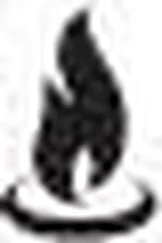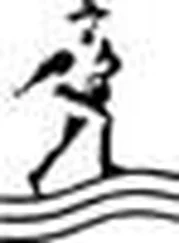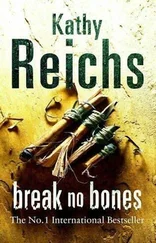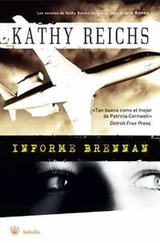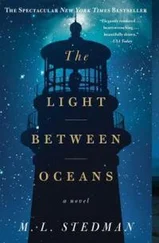“I’ve seen her do this before.”
“Do what?”
“Rag on women in civvies.” Katy nudged me around the girl and up the street. “One of my bunkmates says the kid’s nuts.”
I allowed myself to be led. But when we stopped, I glanced over my shoulder.
The girl was still staring at me. As I watched, a man emerged from the shop and drew her inside.
“Mom.”
I turned back.
“Come look at this.”
Unsettled, I tried to focus on the rug that had drawn Katy’s eye. I was about to comment when the sound of wailing split the air.
“Incoming.” Katy dropped the rug. “Let’s go.”
We bolted across the road, took a hard right, and scrambled into a low concrete structure covered with sandbags. Others already occupied the benches. More followed us in.
In seconds the bunker was full. I sensed no panic, more the calm acceptance that comes with routine.
As we waited in the dark, sirens screaming, I again felt a light touch on my hand. I glanced left. Recognized the silhouette. The Allah girl was hunkered beside me. Beyond her was the man who’d taken her inside the shop.
Time passed.
The girl was so close I could feel her body trembling. At one point she whimpered. The man spoke to her sharply. I heard the word Khandan . Her name?
Finally, the all-clear sounded. We gathered our gear and scrambled out.
“You’re pretty cool about this,” I said, slinging my backpack over one shoulder.
Katy shrugged. “More a nuisance than anything. You get used to it. Life goes on.”
Usually. But many had died at U.S. bases as a result of missile and mortar attacks.
As we spoke, the man and girl passed. Though he paid us no attention, her eyes again locked onto mine. Sad? Bewildered? Pleading?
Yes. That’s what bothered me. The girl seemed so needy. But needy of what?
Then she was gone.
“What do you suppose that kid was trying to say?” I asked Katy.
“I told you. She’s a nutjob. Forget it.”
I tried.
But that night, alone in my bunk, the girl’s face floated before me.
Again and again I saw the dark, imploring eyes.
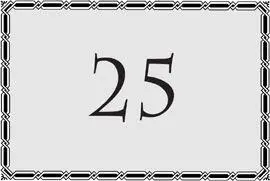
TWENTY-FOUR HOURS LATER I WAS still thinking about the girl.
Two girls, actually.
Khandan, at Bagram. Jane Doe, in Charlotte.
Welsted had organized my return flights. I’d risen with the sun to set out. The seven-thousand-mile trip, one to tax the resolve of even the most hardened traveler, started sadly, then quickly morphed into a nightmare.
First there was the tearful farewell with Katy. She met me at the flight line. We hugged tightly. She was so damn strong.
“You going to be okay?”
“I’m the one leaving. Promise you’ll be careful?”
“Relax, Mom. I’ll be fine.”
Her calm certainty filled me with an odd sort of dread.
We’d hugged again. Then I’d made my way toward the lockdown hangar.
That’s when the true misery began. Our C-130J had a blown rotor on one engine. Mechanics had been summoned. We all know what that means.
Already cleared for departure, I wasn’t allowed to return to base. I spent hours dozing, watching football, drinking coffee, going to the head, and eating plastic sandwiches and muffins with a hundred sweaty soldiers, airmen, and marines.
Finally, we boarded and harnessed ourselves in. The plane muscled up through the desert air, broke the clouds, and leveled off. I leaned back against the icy vibrating bulkhead and closed my eyes.
And there were the girls.
Khandan. Something about her intrigued me. Katy said she was mentally challenged, but I wondered. She’d had an intensity that didn’t square with that.
What had she been trying to say? I’d gotten one word. Allah . Was she seeking help? A handout? A sale? A convert? And why did the encounter bother me so?
Then there was Jane Doe in the MCME morgue cooler. Radio silence from Larabee. Dead ends, trails gone cold? Was Slidell still pushing? I needed to complete my testimony, get home, and rededicate myself to the case. To the promise I’d made her.
By the time we touched down at Manas International my head throbbed, a vein of fire ran my spine, and my ankle was causing me serious grief. This time I was met by a milk-faced soldier with a corn-silk mustache. His fatigues read ELKINS.
“Sergeant Mensforth is tied up.” Elkins’s voice was high and adenoidal. “I’ll help get you processed.”
I followed him through the labyrinth that was the transit center, weaving among U.S. service members and Kyrgyz guards with stone faces and very large guns.
Elkins pointed at a pile of luggage that looked identical to the one I’d rummaged on the way out.
I collected my bags and lugged them to customs. Where every item was removed and inspected as though my record showed multiple convictions for trafficking in heroin and guns.
We proceeded to passport control. Where I was refused clearance.
Not conversant in Kyrgyz, I failed to understand the problem. So did Elkins. A translator was summoned. Much discussion followed, during which my flight was called.
At long length, the interpreter explained that upon arrival I’d been issued a permit for one entry into Kyrgyzstan. Today’s transit constituted a second entry.
Sixty minutes and a zillion phone calls later, the issue was resolved. Or a bribe was paid. I’ve no idea. I bolted to the gate and boarded as the door was closing.
Five hours after taking off, I landed in Istanbul. I was checking e-mail in the Turkish Airlines lounge when an annoyingly calm and sugary voice announced several flight delays. Mine was among them. Since the lounge was the most comfortable place I’d been in a week, I was not devastated.
Dawn was lighting the horizon when I finally settled into my little pod in business class. I was reading the menu when the captain’s voice came over the intercom.
“Ladies and gentlemen, we’ve got a pesky little light flashing on the board up here. Probably nothing, but we’re being advised to remain at the gate.”
The cabin attendants immediately began dispensing alcohol to the business-class passengers. Little comfort to us nondrinkers.
It was late afternoon when we finally took off. Once airborne, I ate dinner, watched one movie, then lowered my seat and killed the light. Though fitfully, I did sleep.
Beyond knowing I’d gained seven hours, I was clueless about my exact ETA in DC. I collected my bags, dragged through customs and immigration, then on to my departure gate.
What are the odds? My flight was delayed.
There are times when all one can do is acknowledge the random futility of existing in this universe.
While waiting, I checked my phone messages. Ruff Noonan had called to say that Lejeune was aware of my situation, and that someone would meet me at wheels-down in Jacksonville, North Carolina.
Larabee wanted me to call as soon as I was back in Charlotte.
Pete asked that I phone when stateside.
Nothing from Ryan.
I e-mailed Katy to let her know I’d gotten back to the world.
It was just past midnight when I finally touched down at the Albert J. Ellis Airport in Jacksonville. A sergeant in fatigues approached as I was off-loading my belongings from the carousel. Stout, middle-aged, but looking like he could lift a Toyota.
“Master Sergeant Earl Rigg, ma’am. I’m your ride to Lejeune.” Rigg heaved my duffel onto his shoulder. “Follow me.”
We drove north on Route 258, lights strobing the windshield. Rigg wasn’t a talker. Or maybe he sensed my exhaustion.
I stared out the window, barely taking in the passing tableau. A pawnshop awning saying WE BUY DRESS BLUES. Endless fast-food joints. Wilson Bay, the water an endless black mirror.
Читать дальше



